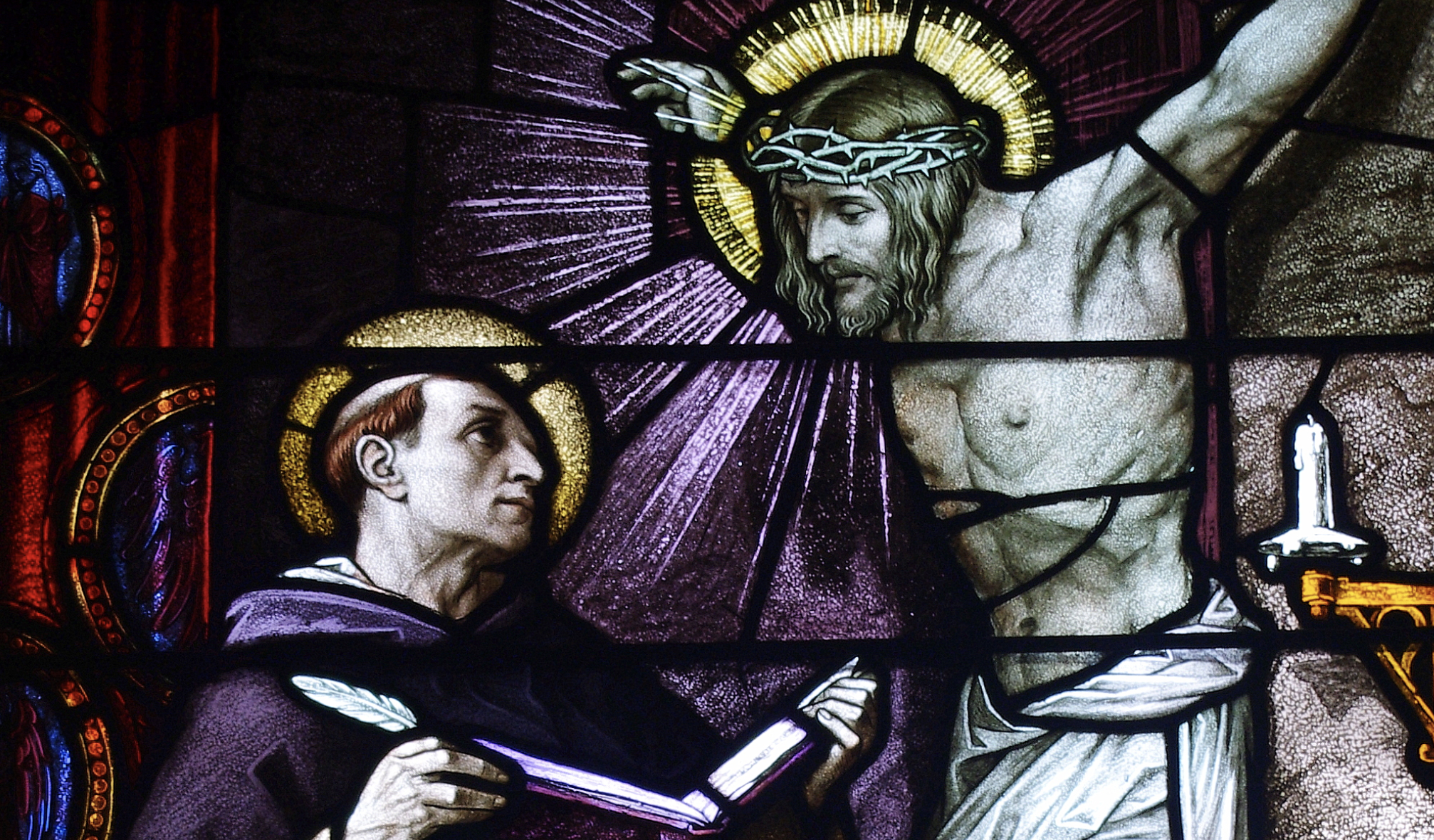This year, 2024, marks the 750th anniversary of the deaths of St. Thomas Aquinas and St. Bonaventure. I have written before of my deep appreciation for St. Bonaventure. Now, following the example of Bishop Barron and Dr. Christopher Kaczor, who both recently expressed their admiration for St. Thomas Aquinas, I would like to do likewise. I will start by discussing my personal experience with St. Thomas Aquinas and then end with the Second Vatican Council’s attestation of the importance of St. Thomas.
During my childhood, I had a fondness for St. Thomas Aquinas simply due to his reputation as being among the best theologians of Church history. When I was confirmed during my freshman year of high school, I chose St. Thomas Aquinas as my patron saint. It was not until I was in graduate school, however, that I really began to study his thought in any sort of real depth.
As a master’s student at Boston College, I took an introduction to moral theology course down the road at St. John’s. It was taught by a renowned Thomist theologian, Fr. Romanus Cessario, OP. Alongside Pope St. John Paul II’s encyclical Veritatis Splendor, the textbooks were Fr. Cessario’s own Introduction to Moral Theology and Fr. Servais Pinckaers, OP’s The Sources of Christian Ethics. While I was already keen on Catholic moral theology from my undergraduate studies, the tutelage of these great Thomists enhanced my understanding of the metaphysical and virtue-ethical underpinnings of Catholic morals. To this day, the principles I learned in that course remain the core of my own moral reasoning and teaching.
Later on, I had the privilege of taking two semesters of metaphysics with the eminent Thomist philosopher Msgr. John F. Wippel (d. Sept. 11, 2023) at the Catholic University of America. I learned a great deal from those courses, which gave me a solid foundation in both metaphysics and epistemology, for which I am deeply grateful.
It is simply not true that the Council sought to minimize St. Thomas’s influence on Catholic theological pedagogy.
Subsequently, I took a doctoral seminar course, “Aquinas on the Incarnation and Passion,” under Prof. William Loewe, also at the Catholic University of America. During that semester, I was even more impressed with the tremendous intellect of the Angelic Doctor, and I began to perceive the centrality of the headship of Christ in Aquinas’s thought. Aspects of what I learned are reflected in my recent article “Contemplating the Cross.”
It is no secret that most of my academic work has focused on the thought of Pope Benedict XVI, who is more Bonaventurian than Thomistic, and that I am broadly associated with the Communio school and the related ressourcement movement. Given the—to me unfortunate—tensions between the ressourcement figures and the Dominican Thomists during the early-to-mid twentieth century, my association with ressourcement can sometimes lead people to assume that I do not have much of an appreciation for Thomism.
That could hardly be further from the truth. As my Word on Fire bio has long stated, I am very much interested in fostering a rapprochement between Thomism and Communio theology. As a member of the American Maritain Association, I gave a presentation last year entitled “Making Common Cause: Maritain for Communio Theologians,” where I sought to encourage the study of Jacques Maritain, himself a Thomist. Additionally, I am currently working on an article wherein I express agreement with French Dominican Thomists vis-à-vis their criticisms of some proponents of what has been called nouvelle théologie (although, I still do not like that term). While I offer some pushback on some of their points, I strongly concur with many of their arguments, especially regarding philosophy and its relation to Catholic theology, as expressed in a recently translated collection of their articles (The Thomistic Response to the Nouvelle Théologie). In fact, I wish that my own theological studies would have had more significant engagement with Aquinas and Thomists.
On that front, I have the support of the Second Vatican Council. Despite the general narrative that the Thomists “lost” at Vatican II, it is simply not true that the Council sought to minimize St. Thomas’s influence on Catholic theological pedagogy. The Decree on Priestly Training, Optatam Totius, did call for significant attention to biblical studies as well as patristics, as the ressourcement contingent desired. However, when speaking of dogmatic theology, it also strongly urges that “in order that [seminarians] may illumine the mysteries of salvation as completely as possible, the students should learn to penetrate them more deeply with the help of speculation, under the guidance of St. Thomas, and to perceive their interconnections” (16). You read that correctly: Vatican II called for seminaries to teach Thomistic speculative theology as a crowning portion of instruction in dogmatic theology. I recently raised this point in an article in Catholic World Report.

What was said about seminary formation is similarly called for at other Catholic institutions of higher education. In the Declaration on Christian Education, Gravissimum Educationis, the Second Vatican Council again commended students to the study of the Common Doctor, and not just within purely theological sciences.
The Church is concerned also with schools of a higher level, especially colleges and universities. In those schools dependent on her she intends that by their very constitution individual subjects be pursued according to their own principles, method, and liberty of scientific inquiry, in such a way that an ever deeper understanding in these fields may be obtained and that, as questions that are new and current are raised and investigations carefully made according to the example of the doctors of the Church and especially of St. Thomas Aquinas, there may be deeper realization of the harmony of faith and science. (10, emphasis added)
While reference is made to Doctors of the Church in general, it is noteworthy that Aquinas alone is mentioned by name as an example of how to engage various academic disciplines and faith together, respecting their proper methods but also striving to show their congruence.
Far from relegating St. Thomas Aquinas to the annals of theological history, the Second Vatican Council explicitly recommends—even commands—the study of his thought. I would argue that today, when society is suffering tremendous damage from a loss of sound metaphysics and ethics, a renewed appreciation for the thought of St. Thomas Aquinas is indispensable for a return to sanity.
